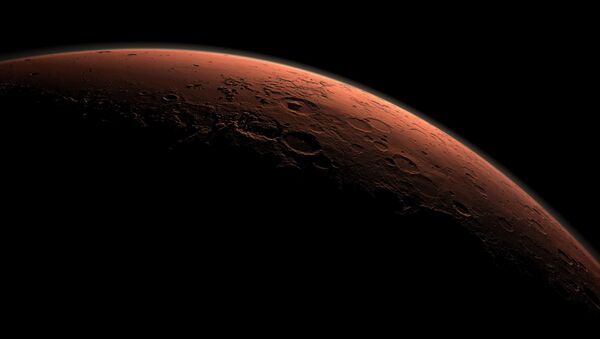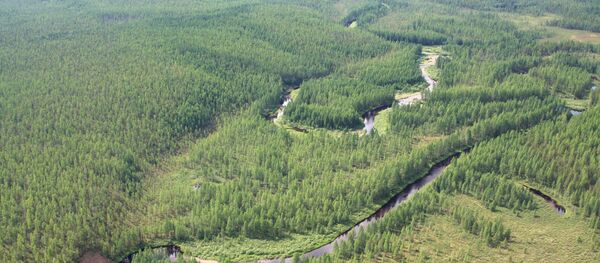As luck would have it, the now-resting rocks are then discovered by scientists in 2012, some one million years after suddenly departing their home planet. The lucky discoverers choose ‘Northwest Africa 7635' to be the rock's name. Now this piece of migrating Martian rock can tell us about its homeland.
Meteorite Confirms 2 Billion Years of Volcanic Activity on Mars @EvanGough2 https://t.co/mlenXW1Rpj pic.twitter.com/BcwPbAOTOp
— Fraser Cain (@fcain) 2 февраля 2017 г.
According to a report by a team of geologists, led by Tom Lapen of the University of Houston, Texas, Northwest Africa 7635 is one of eleven Martian meteorites that have been found on Earth. All of the meteorites share the same chemical composition and ejection time, according to their study.
"We see that they came from a similar volcanic source," Lapen said. "Given that they also have the same ejection time, we can conclude that these come from the same location on Mars."
However, these pieces of rock were formed at different times. Earlier studies of Martian meteorites consisting of volcanic mineral known as shergottite indicated that they were between 327-600 million years old. However, after analyzing Northwest Africa 7635, Lapen and his colleagues concluded that this is a much older specimen, forming about 2.4 billion years ago. This makes Martian mountains some of the longest-lived volcanos in the solar system.
The report of the discovery, published in Science Advances, claims that the data provides new insight into the history of volcanic activity on Mars.
Mars is not a rookie in setting interplanetary records. Olympus Mons, the planet's largest volcano, has a height of 13-17 miles, depending on the method of calculation, making it twice or three times as high as Earth's highest volcanic mountain, Mauna Kea, which, when measured from its underwater beginnings to its snowy top, is about 6.25 miles.



